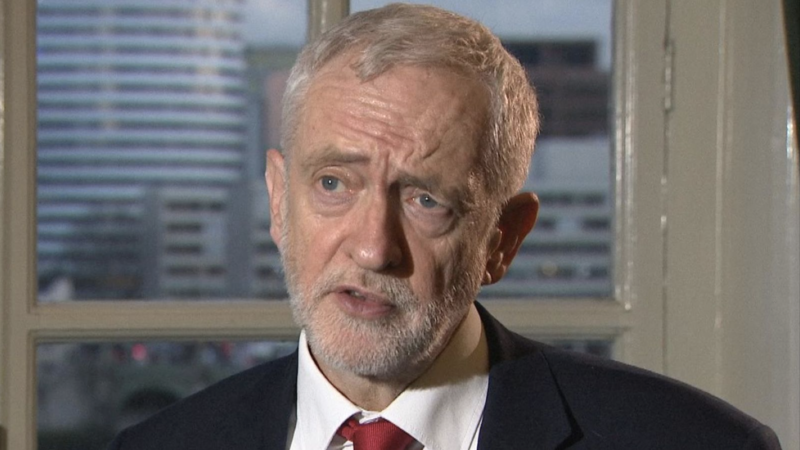
Nothing much appeared to come out of Jeremy Corbyn’s Brexit chat with the Prime Minister yesterday. This is not surprising: she has just promised something undeliverable to get her right-wing flank and DUP on board, temporarily, while the Labour leader is still demanding ‘no deal’ is properly taken off the table and his six tests for the deal are met with customs union membership, etc. But there was a significant detail, which I’m afraid to tell you relates, as usual, to the Irish backstop. Speaking to Sky News after the meeting, Corbyn stressed that he finds no unilateral exit unacceptable. But Keir Starmer – who wasn’t invited to the meeting, as some party activists and commentators were keen to point out and criticise – has already conceded that any Brexit deal being reached now would probably have to include a backstop.
Corbyn’s emphasis on the backstop problem is understandable: it’s not inconceivable that the DUP could be crucial in another no-confidence vote, and Labour wants to apply further pressure on the backstop issue because its Brexit plan supposedly precludes the need for it. Making a customs union shift look like the only solution to the backstop predicament is smart. But The New Statesman’s Patrick Maguire is right to highlight that the position contradicts Labour’s own policy, which says any backstop must be acceptable to both communities in Northern Ireland (and the main nationalist parties support the current backstop). This stance is also aggravating tensions between the SDLP and Labour, and within the latter: former Northern Ireland secretary Peter Hain has written a strongly worded piece for LabourList arguing that the backstop is the “only positive part of the Tory deal”.
This morning’s main news story comes from The Times, which reports that the government is offering cash for Brexit votes. It bought off the DUP, so why not Labour MPs representing deprived Leave seats too? John Mann has already tweeted: “Show us the money. A fund of sufficient size to transform our communities. Our areas voted leave and it is time that we had the investment we need.” It seems to me a bit of a weird move from Theresa May’s perspective. Why spend money on this when some assurances on workers’ rights and a couple of tweaks to the non-binding political declaration would do just as well?
For the Prime Minister, the best outcome of this process is getting the deal through with Tory and DUP votes, keeping her party together. The withdrawal agreement isn’t reopening to change the backstop she herself asked for, so this is unlikely. Next best is getting the deal passed thanks mostly to her own side, but with a few Labour rebels. There have been no repercussions (so far) for shadow ministers who defied the whip to abstain on the Cooper amendment this week, which has raised suspicions among Remainer Labour MPs that this path is very likely, as colleagues could be encouraged with a wink and a nod from Corbyn. (His relaxed attitude towards pro-Brexit rebellion would be seen to help reduce any risk of deselection, for example.) Third best is giving into Labour’s demands and getting its full support, at the cost of Tories splitting off. The opposition leader appears keen, but it may not even come to that.
Sienna @siennamarla
Sign up to LabourList’s morning email for everything Labour, every weekday morning.



More from LabourList
Letters to the Editor – week ending 15th February 2026
‘Labour council candidates – it’s tough, but all is not lost’
‘Labour won’t stop the far right by changing leaders — only by proving what the left can deliver’